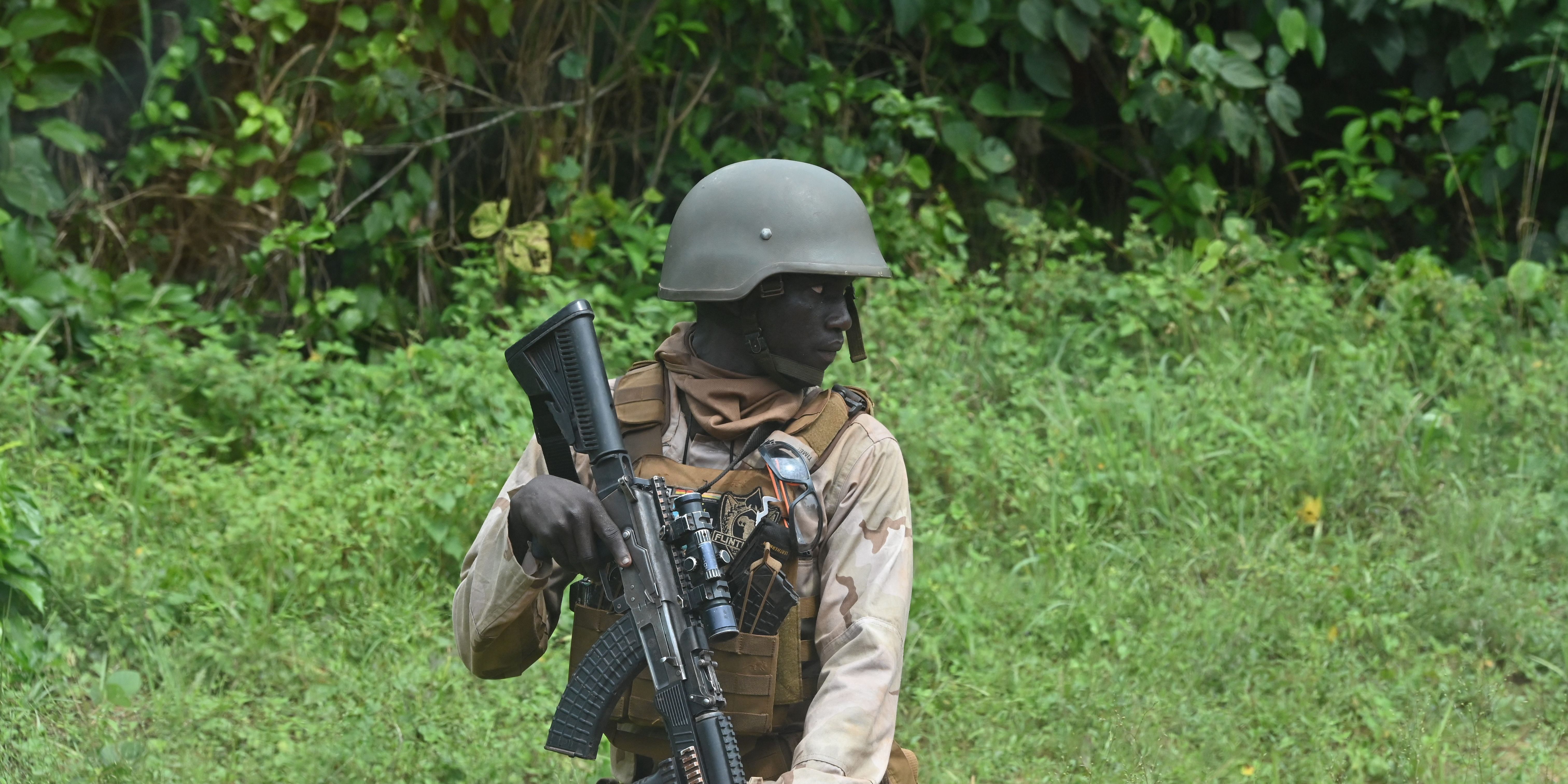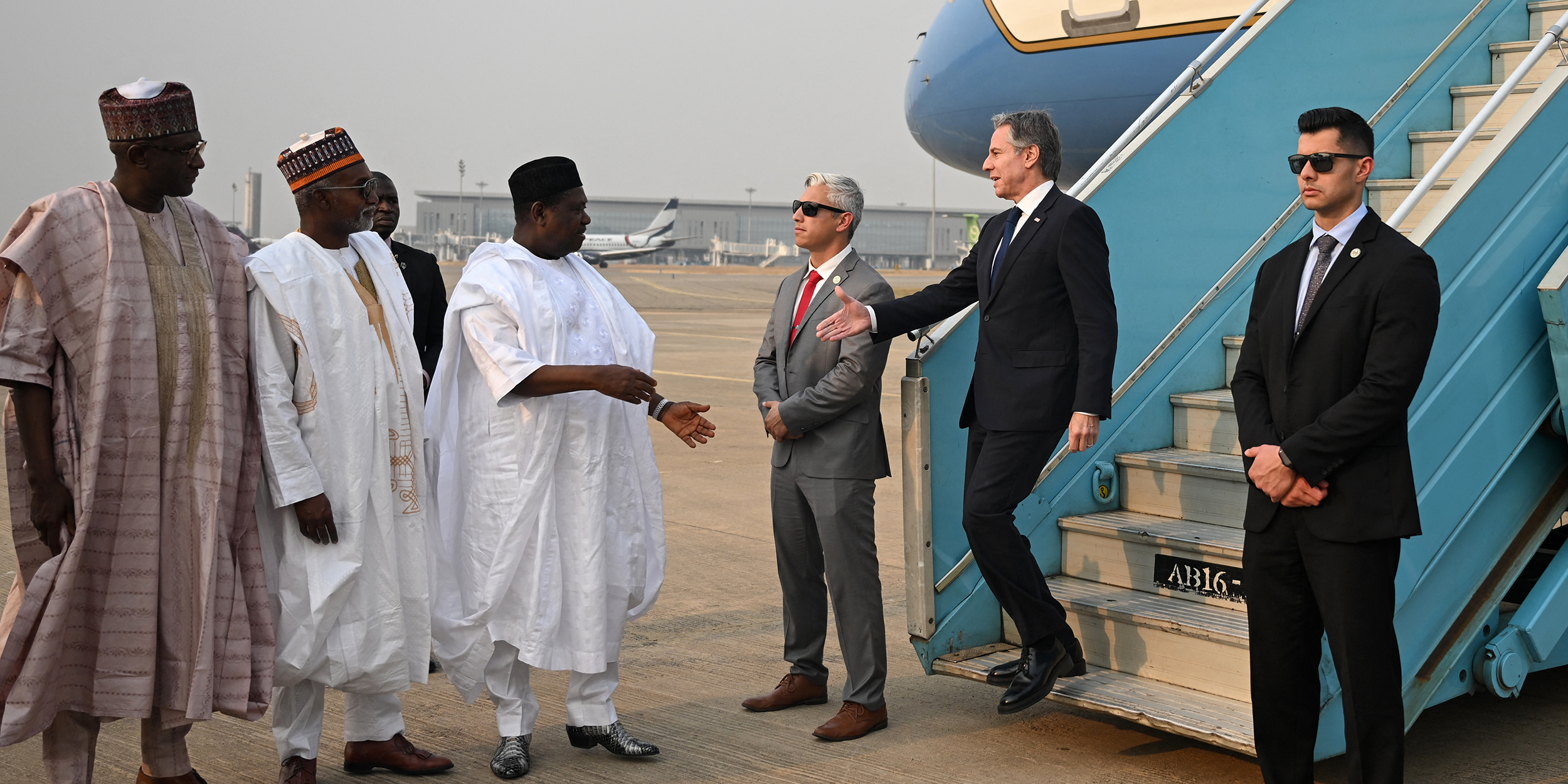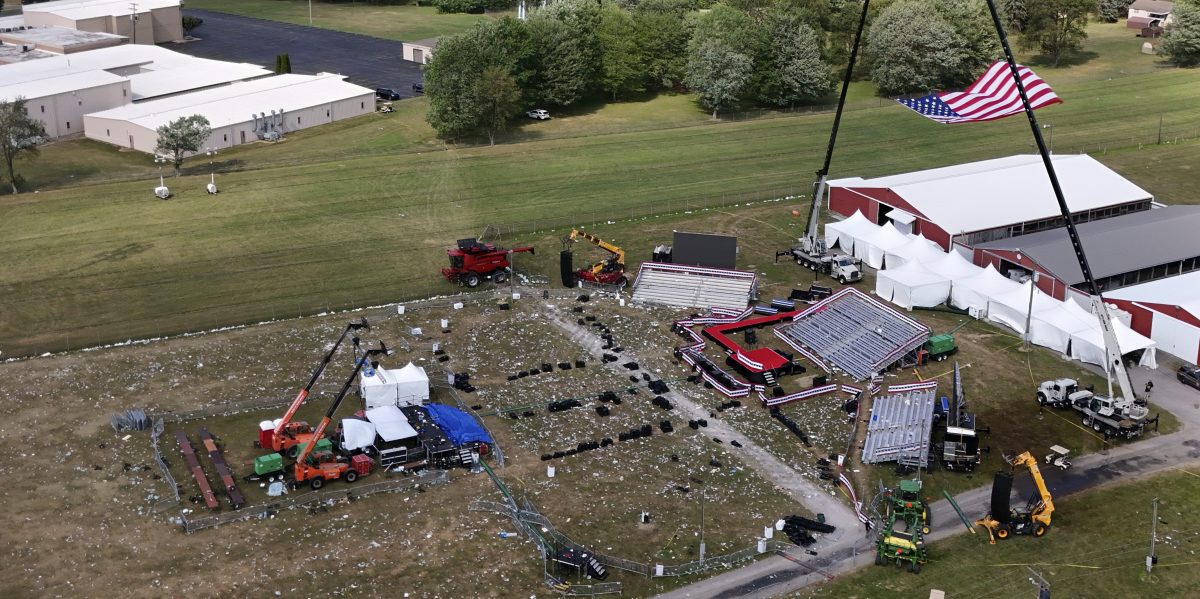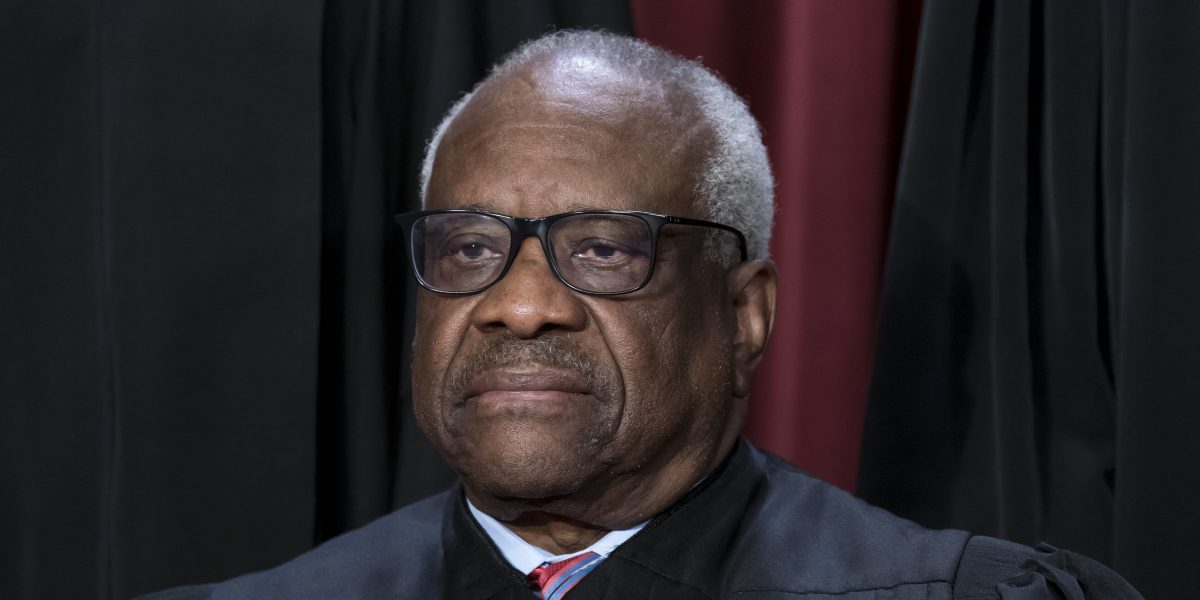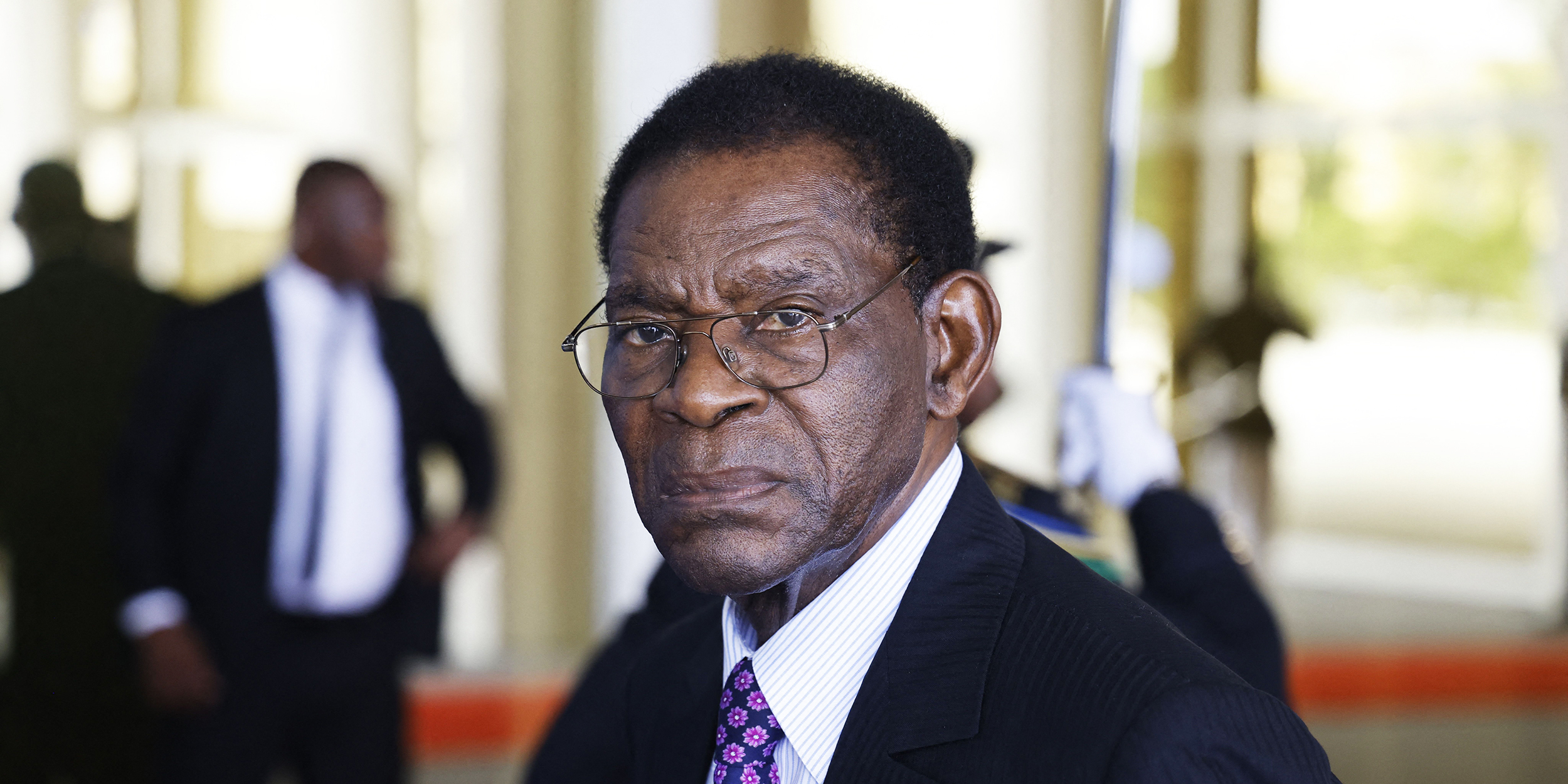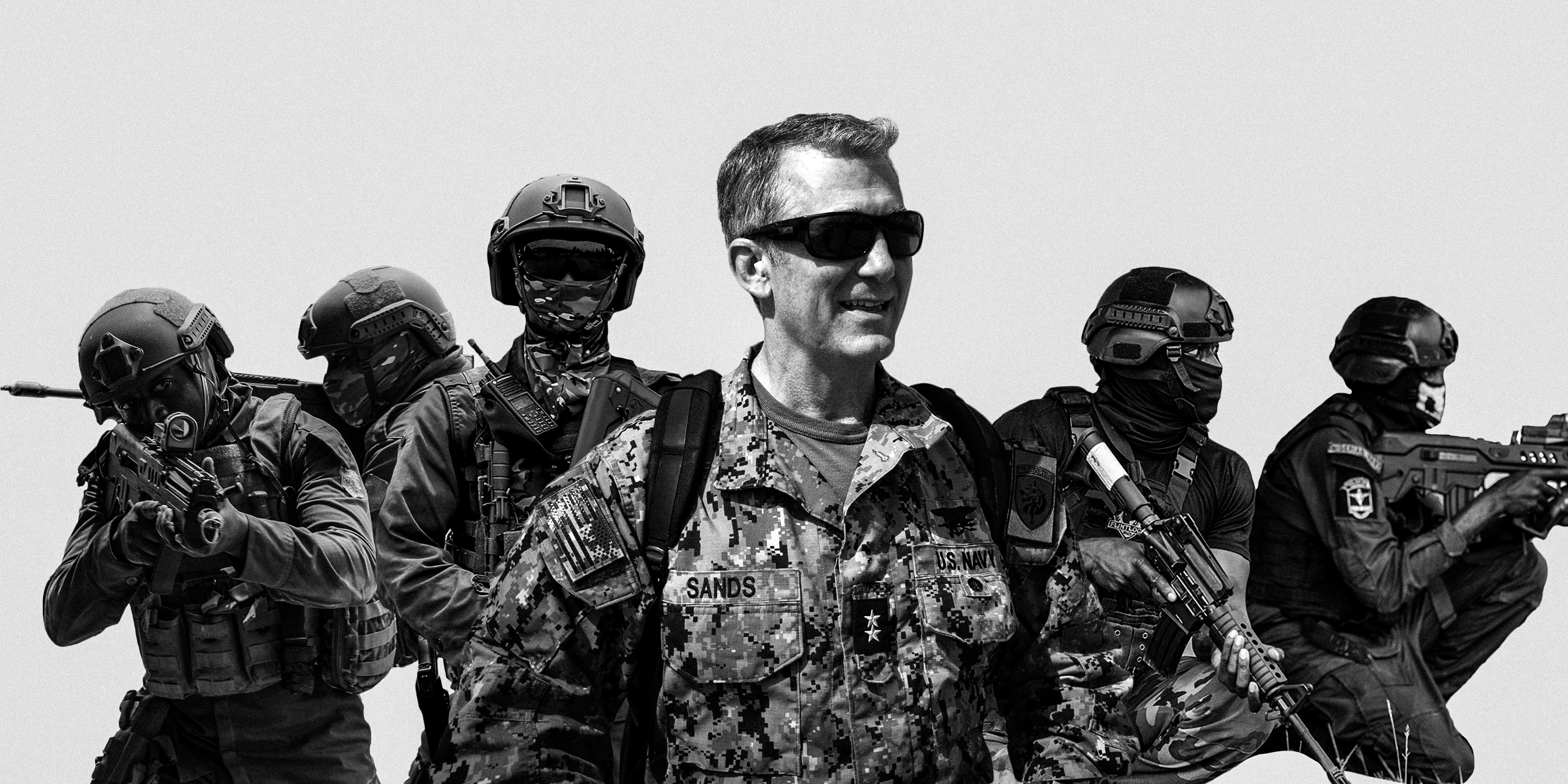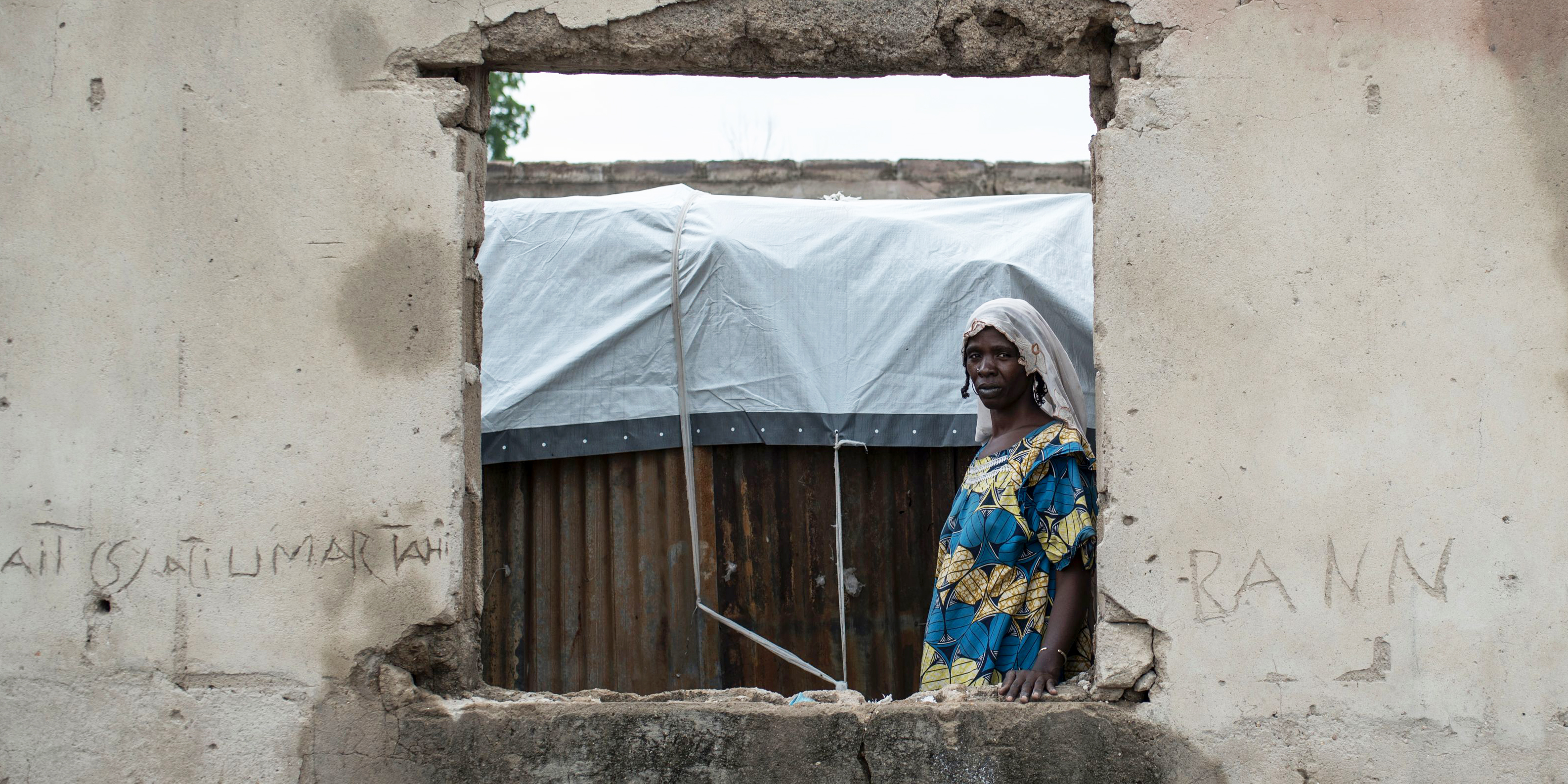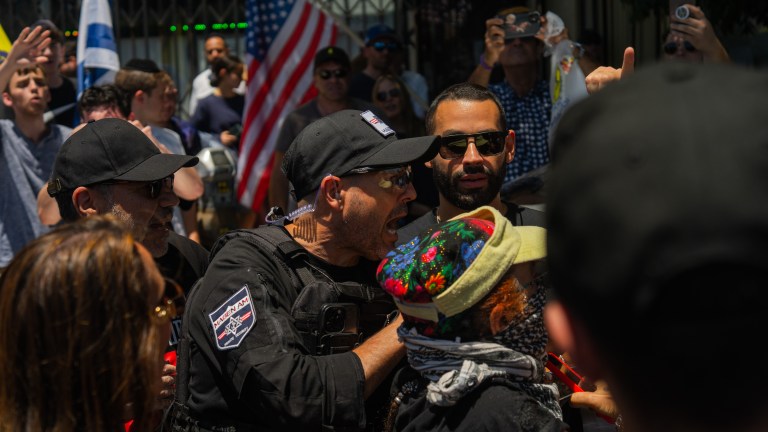A Nigerian airstrike this month on a village in the country’s northwest killed 33 people, according to four residents and a local traditional leader. It is the latest in a long-running series of attacks on civilians by the government of Nigeria, one of the United States’ closest allies in Africa and the recipient of billions of dollars in U.S. weapons and military assistance.
The April 10 attack, the latest errant strike in a Nigerian counterterrorism campaign against militants and “bandits,” came as villagers prepared for Eid prayers marking the end of the Muslim fasting month of Ramadan.
“The pattern of Nigeria’s military operations resulting in civilian casualties is deeply troubling.”
“Arriving at the scene, I saw children, men and women … were killed and trapped inside the collapsed buildings that were hit by a bomb,” Lawali Ango, the traditional leader of Dogon Daji village, told Reuters. (A Nigerian military spokesperson, Maj. Gen. Edward Buba, denied that civilians were killed in the April 10 strike.)
“The pattern of Nigeria’s military operations resulting in civilian casualties is deeply troubling,” Rep. Sara Jacobs, D-Calif., told The Intercept. “One of the biggest factors contributing to violent extremism is security sector violence against you or someone you know — so we’ll likely see the reverberations of this civilian harm for years to come unless there’s justice and accountability.”
Between 2000 and 2022, the U.S. provided, facilitated, or approved more than $2 billion in security aid, including weapons and equipment sales, to Nigeria, according to report by Brown University’s Center for Human Rights and Humanitarian Studies and the Security Assistance Monitor at the Center for International Policy, a Washington think tank. Over that time, the U.S. also carried out more than 41,000 training courses for Nigerian military personnel.
The U.S. has repeatedly raised the subject of civilian casualties with Nigeria’s government. Earlier this year, in the wake of an attack that killed more than 120 civilians, U.S. Secretary of State Antony Blinken reportedly discussed the issue with Nigeria’s President Bola Tinubu.
When pressed by The Intercept following Blinken’s visit on what actions the State Department would take if Nigeria’s military continued to kill civilians, Assistant Secretary of State for African Affairs Molly Phee said, at the time, “I’m not going to get into hypotheticals.”
Since the April 10 attack that killed more than 30 civilians, requests for comment from or to speak with Phee, while acknowledged, have gone unanswered, and the State Department failed to respond to questions on the record.
“Of course, as we always do when we meet with our Nigerian partners, we talk about how to minimize harm to civilians,” Phee told The Intercept in January, asserting that the U.S. seeks “to support Nigeria’s wish to make sure that the country is safe and secure for all of its citizens.”
Since it ramped up its U.S.-backed counterterror campaign in 2017, however, Nigeria has regularly attacked its own people.
U.S. Weapons and Civilian Deaths
A January 17, 2017, airstrike on a displaced persons camp in Rann, Nigeria — revealed by The Intercept to involve the U.S. — killed more than 160 civilians and seriously wounded more than 120 people.
In September 2021, the Nigerian Air Force admitted that it attacked a village, killing 10 civilians and injuring another 20. That April, a Nigerian military helicopter reportedly launched indiscriminate attacks on homes, farms, and a school.
A reported Nigerian airstrike on a village in neighboring Niger in February 2022 killed at least 12 civilians. Another attack in August 2022 left at least eight civilians dead. Witnesses and local officials said a December 2022 strike killed at least 64 people, including civilians. An attack in January 2023 killed 39 civilians and injured at least six others.
And a December 2023 strike killed more than 120 villagers celebrating Maulud, the birthday of the Islamic prophet Muhammad, according to Amnesty International.
A 2023 Reuters analysis of data compiled by the Armed Conflict Location and Event Data Project, a U.S.-based armed violence monitoring group, found more than 2,600 people were killed in 248 airstrikes outside the most active war zones in Nigeria during the previous five years. Most victims were identified as “communal militia,” a catchall category that includes local self-defense forces, criminal gangs, and so-called bandits.
Nigeria’s government has frequently been accused of covering up civilian deaths, including running what a 2023 investigation by Nigeria’s Premium Times called “a systemic propaganda scheme to keep the atrocities of its troops under wraps.”
In 2021, the U.S. provided Nigeria 12 Super Tucano warplanes as part of a $593 million package that also included bombs and rockets. Last May, as part of the sale, the U.S. completed a $38 million project to construct new facilities for those aircraft.
The State Department also approved a 2022 sale to Nigeria of nearly $1 billion in AH-1Z attack helicopters and supporting munitions and equipment.
Last year, Rep. Chris Smith, R-N.J., and Jacobs, the California Democrat, called on the Biden administration to scuttle the nearly $1 billion attack helicopter deal.
“We write to express our concern with current U.S. policy on and military support to Nigeria,” the lawmakers said, urging “a review of security assistance and cooperation programs in Nigeria, including a risk assessment of civilian casualties and abuses.”
Jacobs remains opposed to the sale and called for a thorough investigation of the April 10 strike, stressing the need for justice for the victims and survivors. “But more than that,” she said, “I will continue to push the United States to prioritize human rights and accountability in its relationship with the Nigerian military.”
